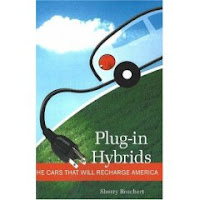The flap about 58
The flap about 58
October 19, 2008
By Anne B. Butterfield
The televised arguments about Amendment 58 are have been noisy about semantics: It's a new tax, No it removes a subsidy! It is all a poor effort to clear up the tangled severance and tax credit arrangement bequeathed to us by legislators of 1977. Governor Dick Lamm tried to get a severance tax through the legislature, which is standard to charge to an industry which permanently removes a mineralogical resource from a state. The Republican dominated Senate favored the oil and gas industry and killed it, but in 1977 lawmakers sat down with industry and crafted a compromise in which what they took with one hand (the severance tax) they gave back with a credit on the local property tax (to the tune of 87.5 percent).
Sausage anyone?
Amendment 58 is a sound effort to restore state tax policy back to equal rates of taxation, allowing communities to set their local taxes according to their values and needs and it will help bring Colorado's severance tax revenues up from the bottom of the list of big oil and gas producing states.
Nonetheless big oil and gas companies and their front groups have advertised scare tactics such as an alleged direct pass-through of this severance tax onto to our utility bill enabled supposedly by the Energy Commodity Adjustment you see on your Xcel bill. That's lying with facts taken out of context. The ECA doesn't kick in until after Xcel feels the price change, and prices are set regionally and nationally. Two thirds of the natural gas drawn out of the crust of Colorado goes to a market stretching from Ohio to California, and what stays home also is set on a regional index. There is no direct path between the restored severance tax and what we pay in our consumer expenses.
The ads have also shown people complain about their gasoline expenses being raised by the small tax increase of Amendment 58. Our oil products in to Colorado come mostly from the surrounding region, and prices paid at the pimp are set at on a national level which consider factors like refining capacity and more. To suggest there's a direct link between 58's severance tax and our price at the pump is like suggesting you can raise the water level in the local river by tossing in a few stones.
Amendment 58 is a way to tax an industry so that no one else pays the tax but the industry itself. That's why ExxonMobil, Chevron, EnCana, Anadarko and others have amassed $10 million to try to defeat this measure which may cost them $300 million per year and scarcely feel it. Remember, these big companies are bound by legal tradition to maximize profits even if the people at the helms of these companies see real value for Colorado in Amendment 58.
The opponents also complain that producers will be shopping around. They won't. In oil and gas markets impacted by unprecedented demand for product coupled with declining reserves world wide, big producers don't move equipment that's installed over productive wells. The producers will stay where the fossil fuel is coming out of the ground. And Colorado is sure to enjoy a boom particularly in natural gas production for years to come.
So we have an opportunity; let's make hay while the sun is shining and pass Amendment 58 to leverage money for our kids' educations. The natural gas and oil that we use today is fossil fuel that our children will not be able to use at all. This is the most important fact we need to face. As that resource leaves the ground we should leverage that economic activity by transferring value to resources which are renewable -- our kids' minds, wildlife viability and renewable energy that will replace fossil fuels when they are gone.
And that day is coming.
A fine source of analysis is at the Web site of the Bell Policy Center.












 Plug-in Hybrids, The Cars That Will Recharge America
Plug-in Hybrids, The Cars That Will Recharge America Oil On The Brain
Oil On The Brain